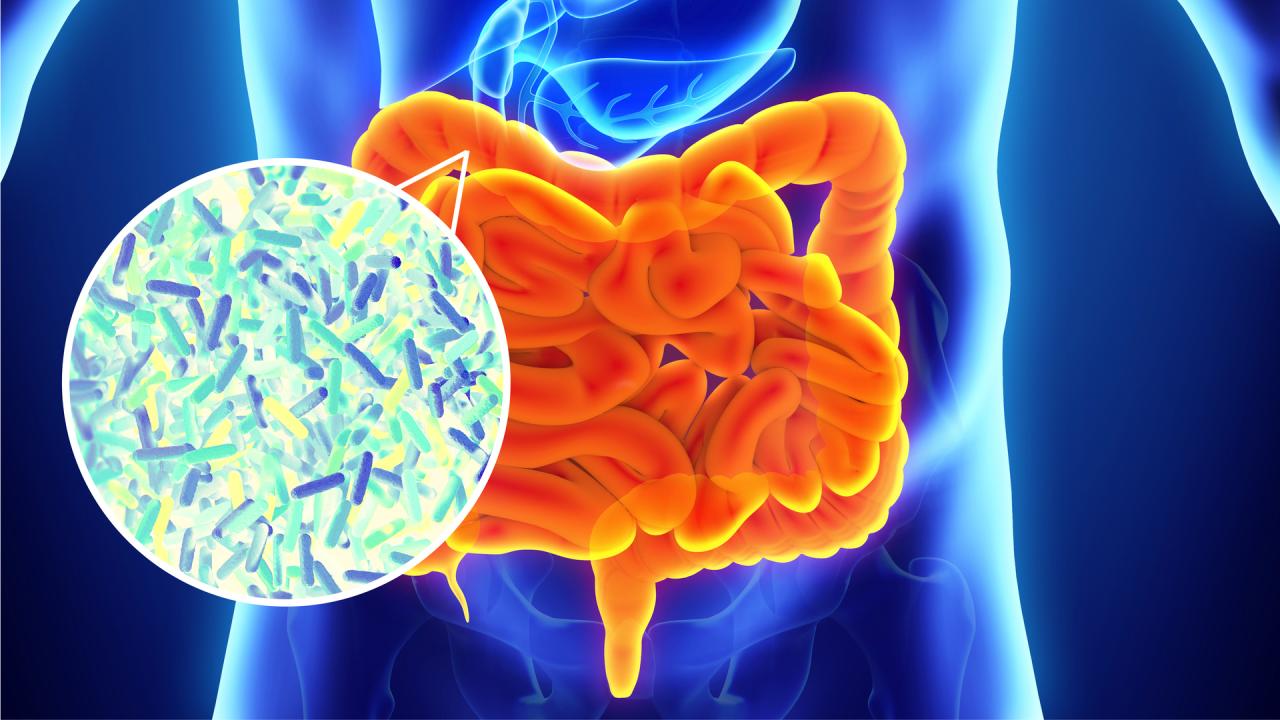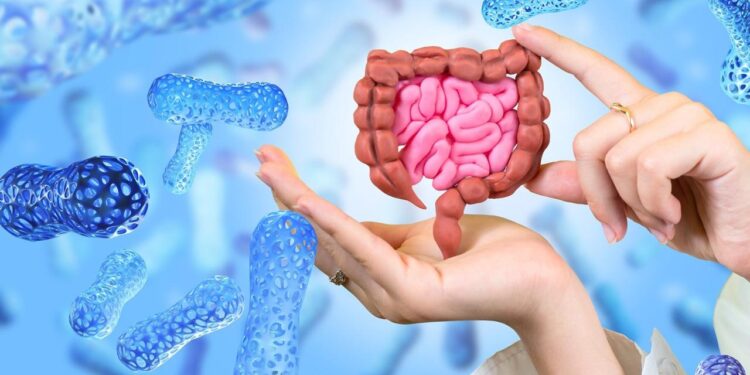In the vast and complex ecosystem of the human body, one area is gaining unprecedented attention from scientists and health enthusiasts alike: the gut microbiome. This intricate community of trillions of microorganisms, including bacteria, fungi, and viruses, resides primarily in our digestive tract. Far from being passive inhabitants, these microbes play a crucial role in our health, influencing everything from digestion and immunity to our mood and cognitive function. The health of our gut is now understood to be intrinsically linked to our overall well-being, a connection often referred to as the gut-brain axis. This comprehensive article will delve into the fascinating world of the microbiome, its vital functions, the role of probiotics and prebiotics, and the actionable steps you can take to cultivate a healthier gut for a healthier you.
The Gut Microbiome

The human gut is home to an astonishingly diverse population of microbes, which collectively form a dynamic and complex ecosystem. This microbiome is unique to each individual, shaped by genetics, diet, lifestyle, and environment from birth. A balanced and diverse microbiome is a hallmark of good health, while an imbalance, known as dysbiosis, has been linked to a wide range of health issues.
A. Digestion and Nutrient Absorption: One of the most fundamental roles of the gut microbiome is to aid in digestion. These microbes break down complex carbohydrates and fibers that our bodies cannot digest on their own. In this process, they produce beneficial compounds like short-chain fatty acids (SCFAs), such as butyrate, which are a primary energy source for the cells lining the colon and play a crucial role in gut health.
B. Immune System Regulation: An estimated 70% of our immune system is located in the gut. The microbiome plays a critical role in training and regulating this system. A healthy gut helps our immune system distinguish between harmful pathogens and beneficial microorganisms, preventing an overactive or underactive immune response. Dysbiosis has been linked to autoimmune diseases and chronic inflammation.
C. Metabolism and Weight Management: The gut microbiome influences how we store fat, how we balance blood glucose levels, and how we respond to hormones that control appetite. Research has shown that the composition of the gut microbiome can differ between lean and obese individuals, suggesting a potential link between gut health and weight management.
D. The Gut-Brain Axis: This is the bidirectional communication pathway between the gut and the central nervous system. The gut microbiome produces a variety of neuroactive compounds, including neurotransmitters like serotonin and dopamine. In fact, a significant portion of the body’s serotonin, a key regulator of mood, is produced in the gut. This communication pathway explains how the health of our gut can directly influence our mood, stress levels, and cognitive function.
E. Protection Against Pathogens: A healthy and diverse microbiome acts as a natural defense system. The beneficial bacteria outcompete and prevent the overgrowth of harmful pathogens, creating a protective barrier in the gut that helps prevent infections and diseases.
Probiotics and Prebiotics
If the gut is a garden, then probiotics and prebiotics are the key to keeping it healthy and flourishing. They work together to maintain a balanced and diverse microbial community.
A. Probiotics: The Live Microbes: Probiotics are live microorganisms, typically bacteria, that when consumed in adequate amounts, provide a health benefit to the host. They are the “good bacteria” that help to rebalance the gut microbiome, particularly after a disturbance like a course of antibiotics. Probiotics can be found in a variety of fermented foods and supplements.
B. Sources of Probiotics:
* Yogurt: Look for yogurts that contain “live and active cultures.”
* Kefir: A fermented milk drink with a broader range of probiotic strains than yogurt.
* Sauerkraut: Fermented cabbage that is rich in beneficial bacteria.
* Kimchi: A traditional Korean side dish made from fermented vegetables.
* Kombucha: A fermented tea that contains a variety of bacteria and yeasts.
* Supplements: Probiotic supplements are available in various forms and strains, offering a convenient way to boost your microbial diversity.
C. Prebiotics: The Food for Microbes: Prebiotics are non-digestible fibers that serve as food for the beneficial bacteria in your gut. They pass through the digestive system undigested and are fermented by the good bacteria, helping them to thrive and multiply. Without prebiotics, probiotics cannot do their job effectively.
D. Sources of Prebiotics:
* Garlic: A powerful prebiotic food that promotes the growth of beneficial bacteria.
* Onions: Like garlic, onions contain a type of fiber that feeds gut microbes.
* Bananas: Ripe bananas contain prebiotics and are a great source of potassium.
* Asparagus: A high-fiber vegetable that is excellent for gut health.
* Oats: A whole grain rich in a prebiotic fiber called beta-glucan.
* Legumes: Beans and lentils are packed with fiber that the gut bacteria love.
The Gut-Brain Axis
The link between the gut microbiome and the brain is a two-way street. The gut and the brain are in constant communication, primarily through the vagus nerve and the production of neurotransmitters and SCFAs.
A. The Vagus Nerve: This is the longest and most complex of the cranial nerves, running from the brainstem to the abdomen. It acts as a superhighway of information, sending signals from the gut to the brain and vice versa. The gut microbiome can influence the tone of the vagus nerve, which in turn can affect mood, stress response, and inflammation.
B. Neurotransmitter Production: The gut microbiome is a significant factory for neurotransmitters. Serotonin, which is a key regulator of mood and happiness, is largely produced in the gut. Dopamine, GABA, and other neurotransmitters are also produced by gut microbes, and these chemical messengers are crucial for brain function.
C. Short-Chain Fatty Acids (SCFAs): The beneficial bacteria in our gut produce SCFAs when they ferment prebiotics. Butyrate, in particular, has been shown to have anti-inflammatory effects and can cross the blood-brain barrier, where it can influence brain function and mood.
D. Impact on Mental Health: A growing body of research is exploring the link between dysbiosis and mental health conditions like anxiety, depression, and even neurological disorders like Parkinson’s disease. By restoring a healthy gut microbiome, scientists hope to develop new, complementary therapies for these conditions.
Practical Steps for a Healthier Gut

Cultivating a healthy gut microbiome doesn’t have to be complicated. Small, consistent changes to your diet and lifestyle can have a significant impact.
A. Eat a Diverse Range of Plant-Based Foods: The key to a diverse gut microbiome is a diverse diet. Aim to eat a wide variety of fruits, vegetables, whole grains, nuts, and seeds. Each type of plant food provides a different type of fiber and nutrient, which feeds a different strain of beneficial bacteria.
B. Reduce Sugar and Processed Foods: Harmful bacteria thrive on sugar and processed foods, which can lead to dysbiosis. By reducing your intake of these foods, you starve the bad bacteria and create a more favorable environment for the good ones.
C. Incorporate Fermented Foods: Make a habit of regularly eating fermented foods like yogurt, kefir, and sauerkraut. This is a natural and delicious way to introduce beneficial microbes into your system.
D. Stay Hydrated: Water is essential for the health of your digestive system and for the microbes that live there. It helps in the movement of food through the gut and keeps the mucosal lining of the intestines healthy.
E. Manage Stress: The gut and the brain are inextricably linked. High levels of stress can negatively impact the gut microbiome. Incorporate stress-management techniques like meditation, yoga, or deep breathing into your daily routine.
F. Get Regular Exercise and Sleep: Physical activity and adequate sleep are crucial for a healthy microbiome. Exercise can increase the diversity of your gut microbes, while sleep helps regulate the body’s systems and allows for cellular repair.
G. Consider Probiotic Supplements (If Needed): While a healthy diet is the best way to support your gut, probiotic supplements can be beneficial, particularly after a course of antibiotics or if you have a specific health condition. Consult with a healthcare professional to choose the right strain for your needs.
The Future of Microbiome Health
The field of microbiome research is still in its infancy, but the future holds immense promise. As our understanding of this inner ecosystem deepens, we can expect to see several exciting developments.
First, personalized nutrition will become the norm. By analyzing a person’s unique gut microbiome, we will be able to provide highly specific dietary recommendations that are tailored to their needs, optimizing their health and well-being.
Second, microbiome-based therapies will emerge. We will see the development of “next-generation” probiotics that are designed to target specific health conditions, from inflammatory bowel disease to anxiety and depression.
Third, we will see a greater integration of microbiome data into mainstream healthcare. Doctors will use microbiome analysis as a routine diagnostic tool to assess a patient’s overall health and to inform their treatment plans.
Finally, we will see a greater emphasis on the environmental microbiome. Our indoor and outdoor environments are also home to a diverse community of microbes, and we are just beginning to understand how these microbes interact with our own. A holistic approach to health will consider not just the food we eat, but the air we breathe and the environments we inhabit.
Conclusion
The gut microbiome is a profound and fascinating frontier in health science. It is a world within us that, when nurtured, has the power to transform our physical and mental well-being. The days of viewing our body as a collection of separate systems are over; we now understand that the health of our gut is intrinsically linked to the health of our brain, our immune system, and our overall vitality. By embracing the principles of a gut-friendly diet, incorporating probiotics and prebiotics, and making conscious lifestyle choices, we can actively cultivate a healthier and more resilient inner ecosystem.
The journey to a healthy gut is a deeply personal one, but it is also a powerful one. It is a journey of self-discovery, where we learn how our diet and lifestyle choices directly impact our mood, our energy, and our ability to thrive. As our understanding of the microbiome continues to grow, we can expect to see a new era of medicine, one that focuses on nurturing our inner ecosystems rather than just treating symptoms. The future of health is not just about what we do for ourselves, but what we do for the trillions of tiny inhabitants that call our bodies home. The revolution has begun, and it starts with what we eat.









Discussion about this post